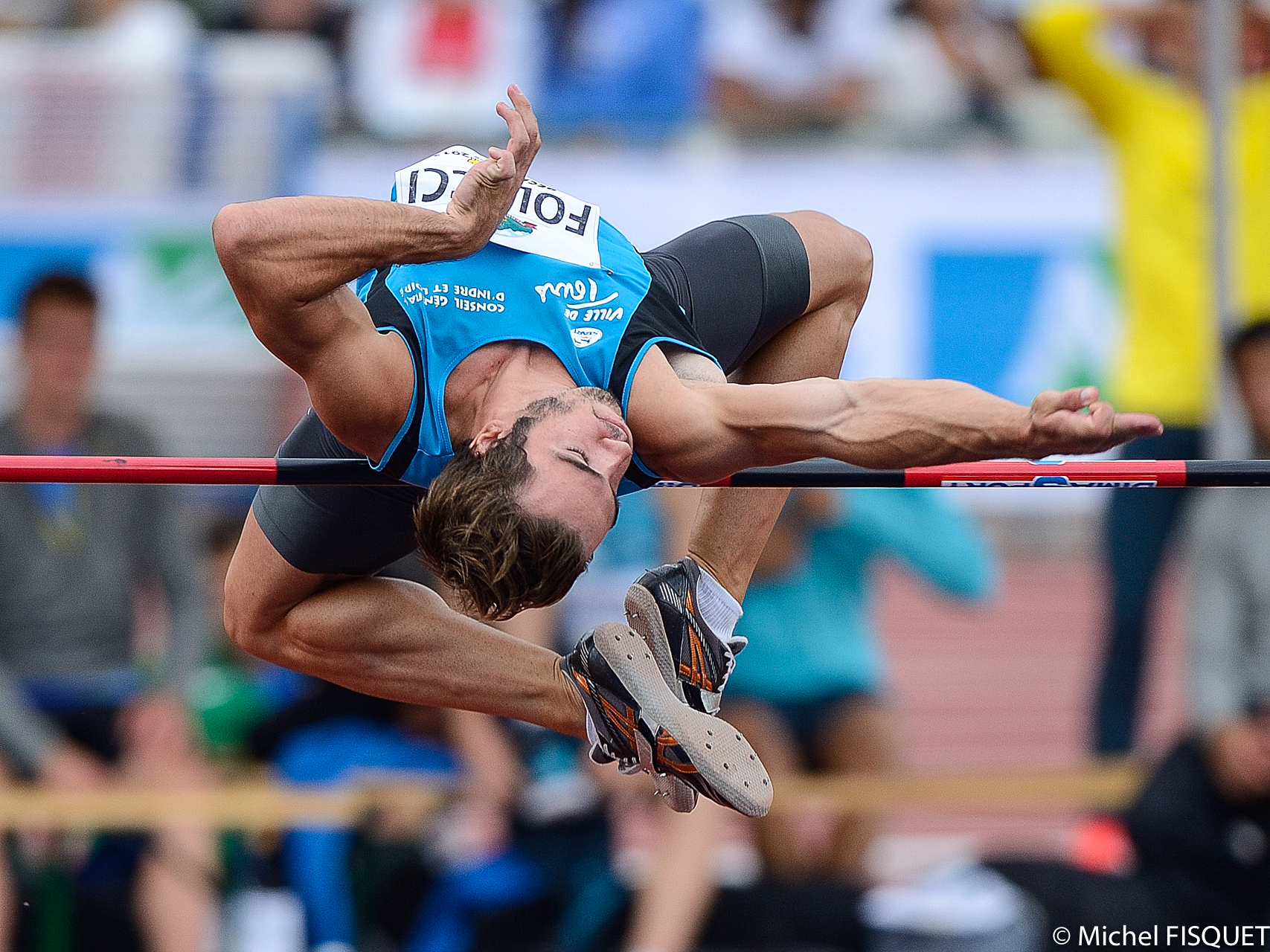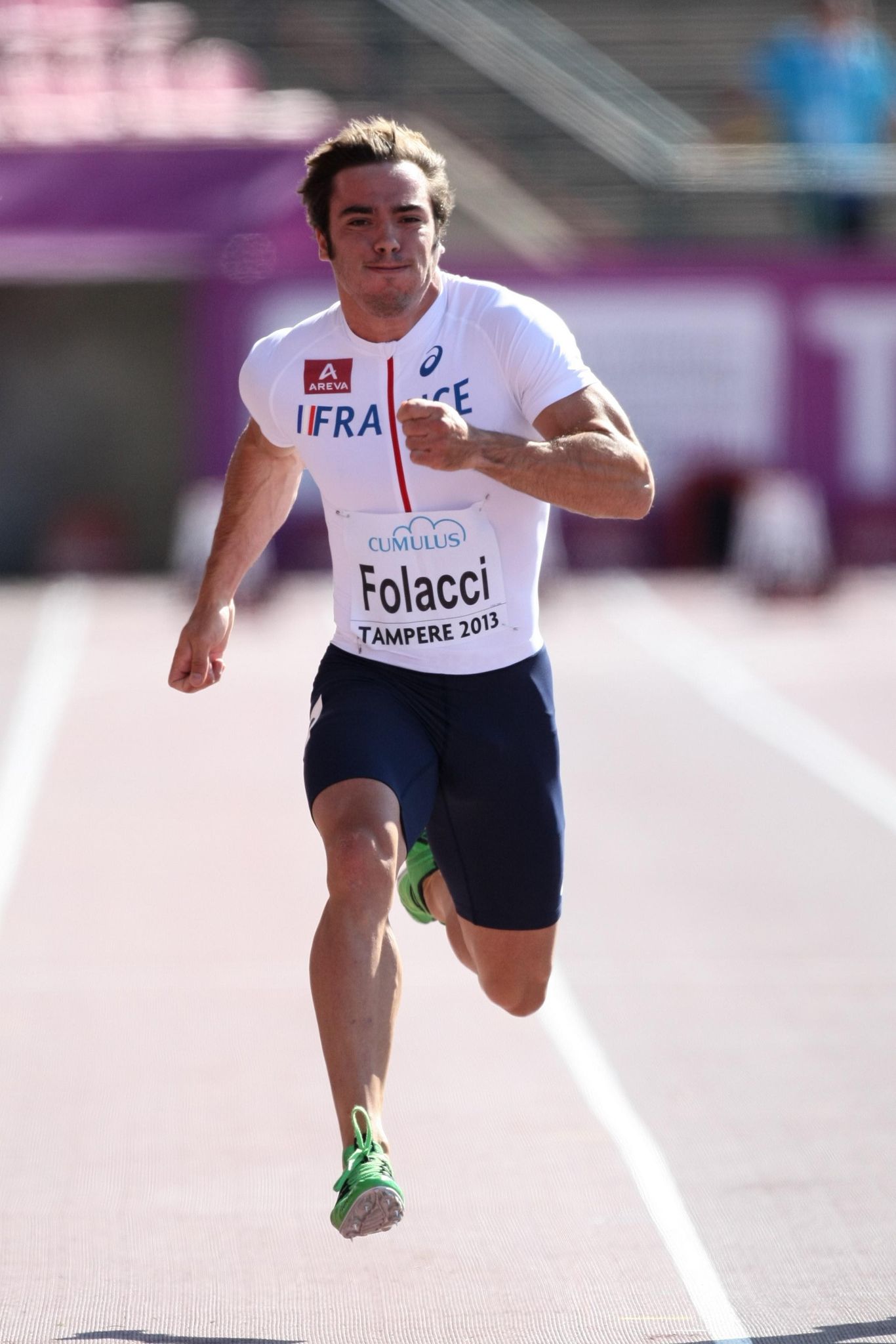This is how you successfully find reconversion after your sports career (0)
All international athletes must survive the end of their sports career and reinvent themselves to transition to a new chapter in their life. Unfortunately, too many track athletes live in poverty during their careers, and once they have to retire, they have little to no professional opportunities even with their diplomas and their incredible work ethic.
Many athletes have been involved only in sports all their lives and do not know how to cope with the outside world. In fact, a few athletes probably choose the most logical path, perhaps continuing in their sport but in another profession (coach, stadium guard, manager, etc).
The end of a high-level athletic career is often very hard to cope with mentally and emotionally, because the athletes have been for decades focusing their lives on their sport, and made countless sacrifices, for almost no financial rewards…
Alexandre Folacci, born in 1991, won the National Championship of France in the Decathlon in 2011 and 2013. During the highlight of his career, he didn't have a coach and was training on his own. Despite being one of the shortest decathletes in the world (1.75m) he was also one of the most explosive. Alex moved to New York City in 2014 to complete his Master’s degree and to prepare for the 2016 Rio Olympics. Unfortunately, he broke his lower back in 2015 and almost ended up in a wheelchair. Alex lost his athletic scholarship from Manhattan College, had to retire from Track & Field, and used his skills to become the number 1 Personal Trainer in NYC and a successful Entrepreneur.

1) Alex, please can you tell us what you have achieved since retiring from the Decathlon?
Hello Janek, thanks for giving me the opportunity of this interview for Decathlon2000!
When I had to stop the Decathlon in 2015, I was phased with 2 choices. Either stop my Master's degree and go back to France or stay in NYC and figure out a way to finish my degree and make money to survive.
Of course, I chose option number 2 and started posting ads for Personal Training on different online platforms. I knew that some incompetent trainers were charging around $100/h. So, of course, I could surpass easily the competition with my skills and knowledge as a decathlete. Within 4 years I was elected the best personal trainer in NYC. Now I have coached over 350 individual clients, such as billionaires, CEOs, celebrities, Royal families, doctors, lawyers, high executives, financiers, entrepreneurs, etc. I started at $35/h in 2015, and in 2022 my pricing is $290/h or $2,500/10 sessions package.
I also created in 2017 my brand of Fitness equipment and apparel called RAPIDE, but I realized I wasn't passionate about online sales. I don't recommend selling physical products online, as only 5% of online stores are actually profitable. I then created an online workout program, which is a digital product and a down-sell offer. It allows me to coach people that can't afford me in person, and who don't live in NYC. That way I can recycle leads into a paying customer, instead of losing it. I also have trainers working under me (other track athletes), and I send them clients that can not afford my fee but still want someone to coach them in person. That is another way to recycle leads. The more upsell and down-sell offers you have for clients, the better it is.
I also started during the 2020 pandemic 3D Scan Manhattan, a 3D photography company for Real Estate because I couldn't coach clients anymore. I used the marketing and advertising skills I developed with my coaching business to be successful right away in this new business. To this day, I have shot in 3D with the Matterport Pro 2 over $2,000,000,000 (two billion) worth of Real Estate in NYC.
2) What makes track athletes more valuable than other fitness professionals?
Track athletes and Decathletes in particular don't realize their level of fitness skills and expertise compared to other fitness professionals. Most professional trainers can only do bicep curls with dumbbells in front of the mirror, and make their clients do 3 sets of 10 on each machine in the gym. As Decathletes, we literally are experts in cardio, weightlifting (Powerlifting, Olympic weightlifting, bodybuilding), calisthenics, stretching/mobility, abs/core, plyometrics, and high-intensity circuit training. It is very rare to combine this level of expertise, and I advise any decathletes to use these selling points to convince clients to pay them their worth. It's easy to explain to a client the difference between a basic trainer and an expert decathlete.

3) Have you talked with other athletes about reconverting them into Personal Trainers?
The problem I have often noticed amongst my track friends is their humility. I know that in general humility is a good thing in the society of course. Humility unfortunately will not get you very far if you want to do your own business and make more money than the average salary. You need to learn how to build your personal brand which is your reputation. You have to market yourself, tell people about your amazing achievements, and why they will get better results with you than other trainers. Of course don't be arrogant, but rather self-confident and ready to back up everything you say. In my life I have met many amazing trainers terrible in the business and marketing part, ending up with very few clients for a low hourly rate. On the other hand, I have witnessed terrible trainers, that were amazing in advertising & sales, and were able to attract a lot of clients for a much higher price per hour.
Now you understand that the goal is to be an expert in many coaching methods and to develop your skills in sales, advertising, marketing, content creation, website building, cash flow management, accounting, taxes, etc. These are skills that will get you to the top of any industry, not only in coaching, and will definitely bring you income your whole life.
4) What are your other ambitions and strategies for success besides being the best Personal Trainer in NYC?
I just love building other businesses and using the business skills I have acquired by being a certified Personal Trainer in Manhattan. Nowadays I study much more business content than fitness content, because I know I am still a beginner in that field. I just see it as a game, where money is a way of keeping track of the scores. I also buy Real estate properties, renovate them with contractors to increase their value, and put them for rent. In real estate, you can make money passively, with the cash flow of your rent after expenses, but you also make money by adding value when you renovate a place, with appreciation, and there are a lot of tax benefits. That is another way to solidify your legacy and make more money from the profit generated with the coaching. My goal is to have over 100 apartments.

In the Decathlon Kevin Mayer found the limits of the human body, but maybe one day somebody will score 9200-9300. In business, there are no limits, and that is why I encourage athletes to start their own businesses rather than working 9-5pm for a job that they do not like and feel miserable.
Trust me, I have built the perfect life for a retired decathlete in NYC! Every day I get to coach my clients, which become my friends, the gym is my office, and I go all around Manhattan which is one of the most loved cities in the world! Even though I work 70-100h a week, it truly doesn't feel like it, because I am loving what I do.
To sum up, don't be afraid to become your own boss, and create your own business in coaching or whatever you might be passionate about. Of course, it will be hard at the beginning, but after 1-2 years, you'll be way ahead of people working normal jobs, and you will have acquired valuable skills for the rest of your life.